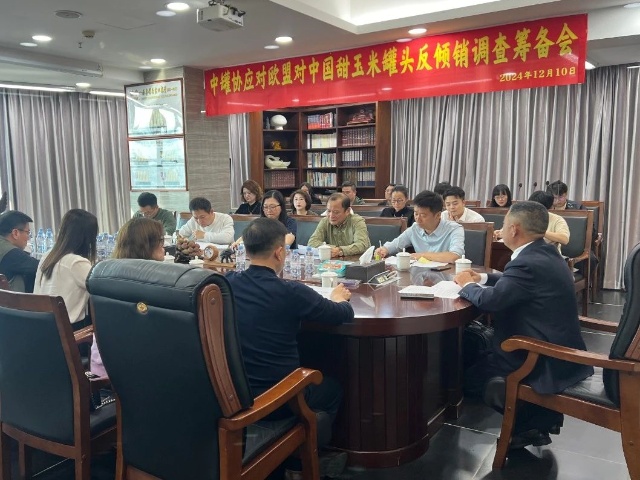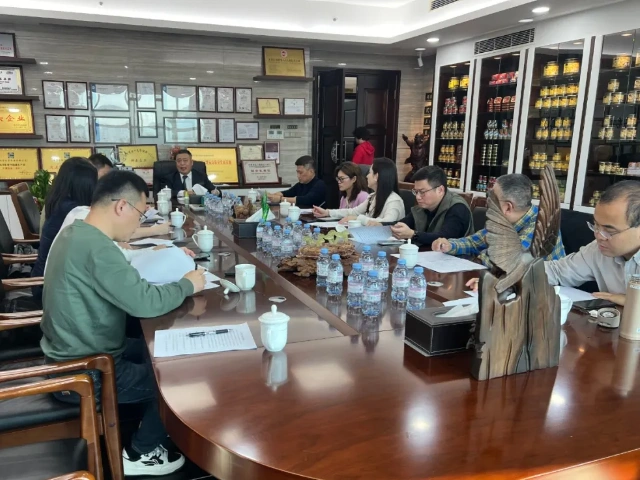Canned Sweet Corn Faces EU Anti-Dumping Investigation: Industry Responds Urgently
The Chinese canned sweet corn industry is facing significant pressure following an anti-dumping investigation launched by the European Union (EU) on December 9, 2023. This investigation, targeting sweet corn kernels exported from China (customs codes: CN codes ex 2001 90 30 and ex 2005 80 00), is part of a broader pattern of EU trade protectionism aimed at Chinese exports. The move has sparked widespread concern within the industry, with stakeholders urgently mobilizing to respond.

The Growing Popularity of Canned Sweet Corn
Canned sweet corn has become a favorite among global consumers, particularly in European and American markets, due to its convenience, nutritional value, and versatility. This product is made from freshly harvested sweet corn cobs through a meticulous process involving peeling, pre-cooking, threshing, cleaning, canning, and high-temperature sterilization. The result is a product that retains the natural taste and nutritional benefits of sweet corn, offering vitamins, minerals, low calories, and high fiber content—a perfect fit for health-conscious diets.
However, the EU’s investigation now poses a significant threat to this thriving segment of China’s food export industry.
The Challenge for Chinese Exporters
The anti-dumping investigation creates immediate challenges for Chinese exporters of canned sweet corn. According to the China Canned Food Industry Association, China exported over 50,000 tons of canned sweet corn to Europe in 2023. A successful anti-dumping case could lead to additional tariffs or restrictions, severely impacting the industry's competitiveness in the European market.
Recognizing the urgency, the China Canned Food Industry Association convened an emergency meeting in Zhangzhou, Fujian, on December 10. Chaired by Liu Youqian, the association’s chairman, the meeting brought together representatives from 18 key companies, including Chenzi Trade, Qingdao Kaichuang, Lixing Group, and Tongfa Group. The focus was clear: mobilize resources, strategize a collective response, and address the investigation’s procedural and legal demands.
Industry’s Coordinated Response

Chairman Liu emphasized three critical aspects of this challenge: tight timelines, substantial impact, and demanding tasks. Companies have only seven days from the EU’s announcement to decide whether to formally respond to the investigation. Moreover, the documentation process is intricate, with all submissions due by December 15—a significant burden given the complexity of anti-dumping cases.
To tackle these challenges, the meeting resulted in the establishment of a dedicated working group under the Zhangzhou Canned Food Chamber of Commerce. This group will coordinate industry efforts, monitor progress, and liaise with Li Qing, the deputy secretary-general of the China Canned Food Association. Additionally, professional anti-dumping lawyers were invited to the meeting to provide guidance, clarify legal complexities, and support companies in their responses.
Demonstrating Unity and Resilience
Despite the challenges, the Chinese canned sweet corn industry has shown remarkable unity and determination. Companies have pledged to collaborate under the leadership of the China Canned Food Industry Association, demonstrating a collective commitment to preserving their position in the global market. Many believe that with careful preparation and industry-wide solidarity, they can successfully address this investigation and mitigate its potential impacts.
This situation also underscores the broader need for Chinese food export companies to strengthen their competitiveness. By focusing on quality assurance, compliance with international standards, and proactive engagement with global trade policies, the industry can not only overcome this challenge but also position itself for sustainable growth in an increasingly complex trade environment.
The Global Call for Fair Trade Practices
The Chinese canned sweet corn industry’s predicament is not just a domestic issue—it’s a reflection of the broader challenges facing global trade. Protectionist measures like anti-dumping investigations can disrupt supply chains, increase costs for consumers, and hinder the free flow of goods.
China’s food industry leaders are urging the international community to uphold principles of fairness, justice, and openness in global trade. These values are essential to maintaining a stable and prosperous global economy, ensuring that businesses of all sizes can compete on a level playing field.
Conclusion
The EU’s anti-dumping investigation into Chinese canned sweet corn exports represents a critical juncture for the industry. While the challenges are significant, the swift and coordinated response from Chinese stakeholders highlights the resilience and adaptability of the sector. Moving forward, the industry’s ability to navigate this issue will not only impact its future in the European market but also serve as a benchmark for how Chinese export sectors address trade disputes.
In the face of adversity, the Chinese canned sweet corn industry is proving that unity, preparation, and a commitment to quality can help overcome even the most daunting obstacles. By standing together and advocating for fair trade, the industry is charting a course toward a more sustainable and equitable future for global commerce.




